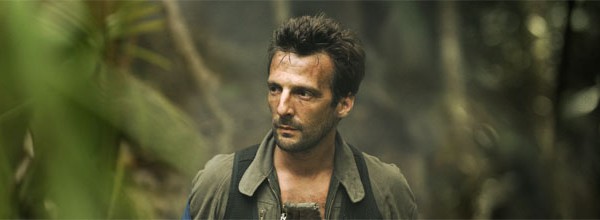Mathieu Kassvotiz’s Rebellion is dramatisation of events in 1988 which saw members of the French gendarme taken hostage by nationalists in the French colony New Caledonia in the name of independence.
The story follows real-life negotiator Philippe Legorjus (whose book, La Morale et l’Action, this is based on) and his attempts to diffuse the situation between both sides and then with other concerned parties as the depth of the complexities of the situation arise. His reasoning that the hostage-takers are, “not fanatics, just guys who messed up” is sincere and touching; and displays much more heart than those in power.
Legorjus finds himself captured but finds a common goal with his separatist captor and is able to move freely to negotiate between the army, politicians and “terrorists”. The hostility the peacemaker initially faces with those seeking freedom is nothing compared to the brick wall of his superiors and French politicians.
It’s a fascinating take on the war movie. The opening scenes rival the very best in the genre, such as Apocalypse Now (which it gives the odd nod to), Platoon and Battle of Algiers. For many moments in the film, the camera seems to be in love with its location (here Tahiti doubling for New Caledonia) and drinks in the luscious surroundings, seducing the viewers in before it battering their collective conscience.
The closing scenes too are genuinely rousing and palpitating, at points using long takes with the frame hectically moving around, trying to find the “enemy” (or the “heroes”) in vain as bullets fly invisibly around. It’s breathless in parts and Kassovitz displays a real talent for anticipation and suspense. A special mention must also go to the exquisite helicopter camera work throughout; sublime and entrancing.
Likewise, the soundtrack is haunting and affecting; not unlike something you might hear in a horror flick. It booms and pulsates, sometimes in conjunction with the action but other times as a reminder of the unpleasantness around the corner. A tremendous and plaudit worthy piece of work from Klaus Badelt.
It’s not all perfect, however. There are some pacing issues. After the adrenalin and intrigue of the opening hour or so, the negotiations kick in proper and the film drops in its beauty and interest for more contemplative and wordy sections. The background of the conflict is fully explained on all sides but you might left thinking that this could have been trimmed more artistically.
Rebellion is an unflinching and uncomfortable watch and pushes buttons that are pertinent to a number of countries around the world today – who perhaps have a presence in a country they shouldn’t. Here, those at the front may well be violent (or have the capacity to be) but they are not those perpetrating or prolonging the violence. It’s a complex tale, both thoughtful and mesmerising in equal parts.
![]()
Released in UK cinemas on Friday 19 April 2013 by Lionsgate.

